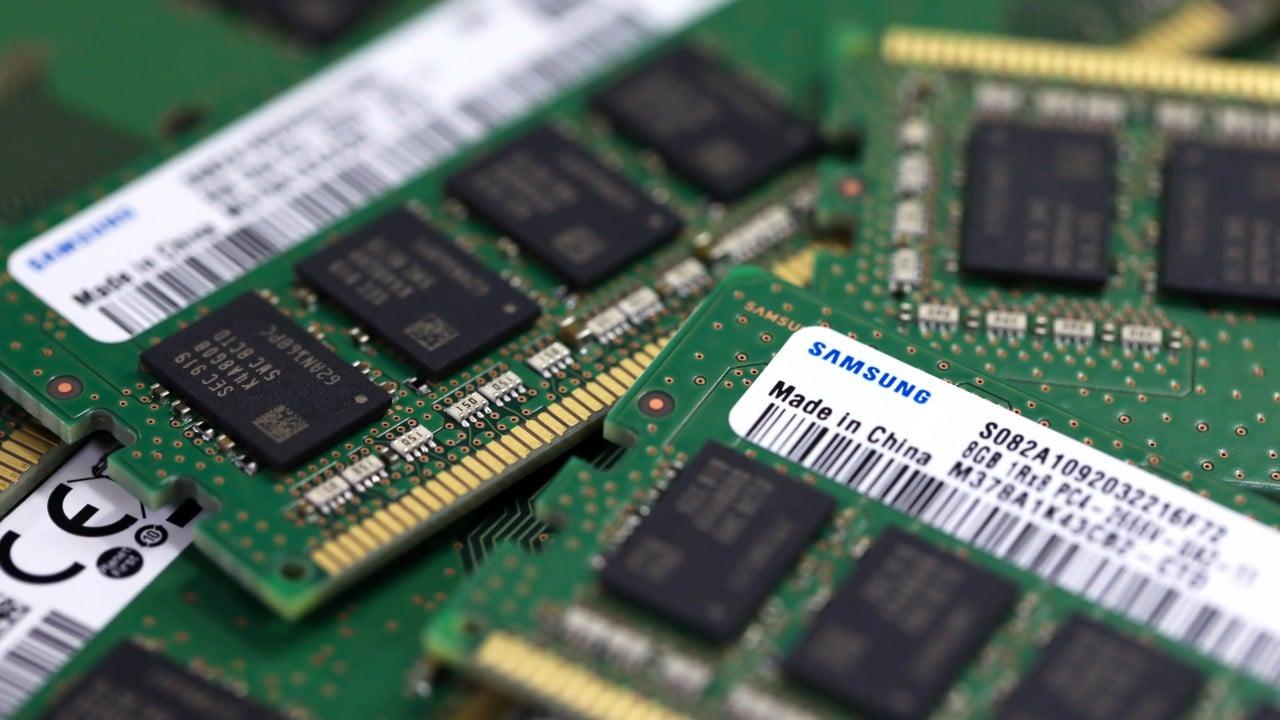
On Thursday, an article in the People’s Daily-affiliated tabloid Global Times quoted Lu Chao, a professor with Liaoning University in northern China, as saying that Korea’s semiconductor industry should not decouple from China.
There are already signs that chip companies are looking to form closer business ties with South Korea.
Peter Wennink, CEO of Dutch semiconductor equipment giant ASML, met South Korean foreign minister Park Jin on February 17 during his visit to the Netherlands to discuss potential collaborations.
According to the South Korean foreign ministry, Wennink said ASML wanted to “expand investment” in South Korea and hoped that the country can become a northeast Asian hub for the semiconductor industry. Park, meanwhile, said the country is “strengthening incentives” to attract investment.
Peter Wennink, CEO of Dutch chip equipment maker ASML, attends a press conference in Seoul on November 15, 2022. Photo: Bloomberg
A week after the meeting, the South Korean government unveiled its “new growth strategy 4.0”, focusing on developing three industries in the country, namely semiconductors, batteries and displays.
In November, ASML, which holds a monopoly on the high-end extreme ultraviolet lithography machines required to make chips at the 5-nanometre node, started building new facilities in the Seoul suburb of Hwaseong, a 240 billion won (US$180 million) project that is expected to be completed by 2024.
The 1.6 hectare (170,000 square feet) area, located around 16 kilometres from Samsung Electronics’ chip factory in Pyeongtaek, will include a local repair centre, a component development centre and an employee training centre.
South Korea and the Netherlands can achieve “synergy” in their semiconductor sector by combining the technological know-hows of ASML and Korean firms, according to Kang Jun-young, professor of China studies at Hankuk University of Foreign Studies.
“As the Netherlands decided to join the US chip controls on China, its investment in South Korea will also naturally increase,” Kang said.
The logo of SK Hynix is seen at the 2019 Korea Electronics Show in Seoul. Photo: AP Photo
Other chip machinery powerhouses are also pouring money into South Korea. Japan’s Tokyo Electron has said it will spend 110 billion won this year to expand its research and development centre and clean room facilities in Hwaseong.
California-based Applied Materials recently announced plans to build a memory chip equipment research centre in South Korea to better serve Samsung and SK Hynix, the country’s two leading chip makers. The American company is currently scouting for a site to house the centre, according to Park Gwang-sun, CEO of its Korean operations.
South Korea will remain one of the largest export partners of ASML, according to Park Ki-soon, a senior adviser to Dentons Lee Law Firm with expertise in the Chinese economy, because any advanced equipment that they buy in future will mostly be used domestically, rather than being transferred to their plants in China.
Samsung’s microchips displayed at its store in Seoul. Photo: AP Photo
After the Biden administration tightened export controls on advanced chip design and manufacturing technologies to China last October, Korean chip makers had to apply for a one-year grace period to keep importing the necessary equipment for their existing facilities in mainland China. It is unclear whether companies can apply for an extension of the grace period.
Going forward, any partnership between Korean chip makers and foreign machinery suppliers is likely to bring investments directly into South Korea instead of China, according to Sejong University’s Kim.
“I think [the US chip controls] would rather benefit South Korea,” he said. “ASML’s investment especially will be beneficial for the South Korean chip industry.”


